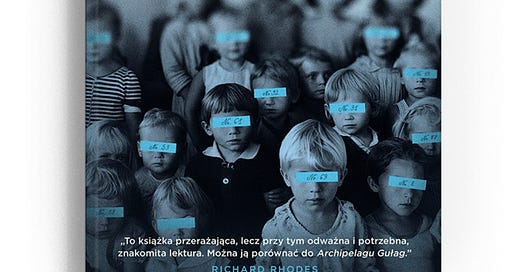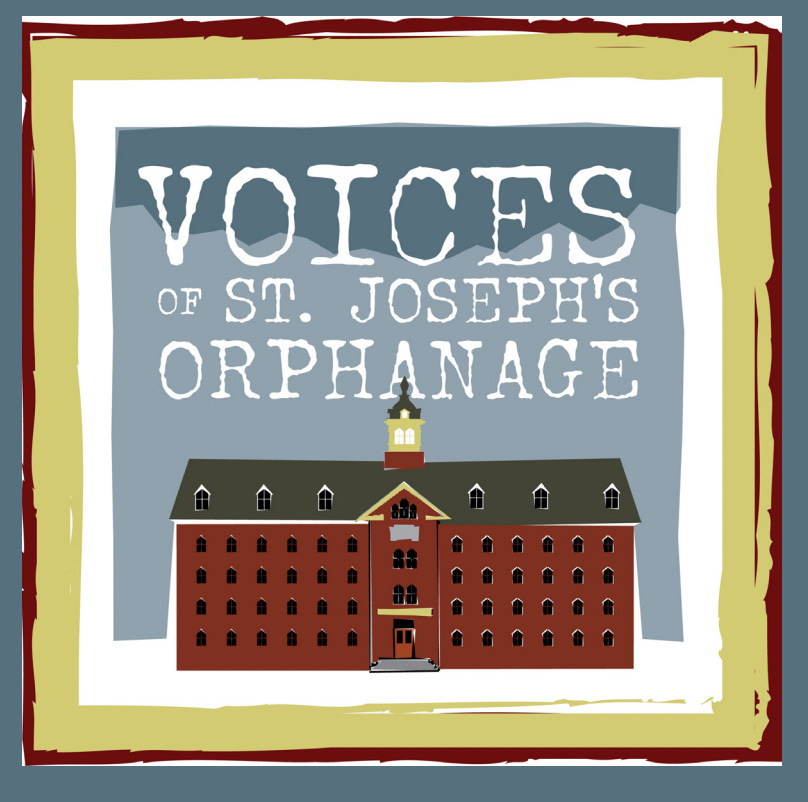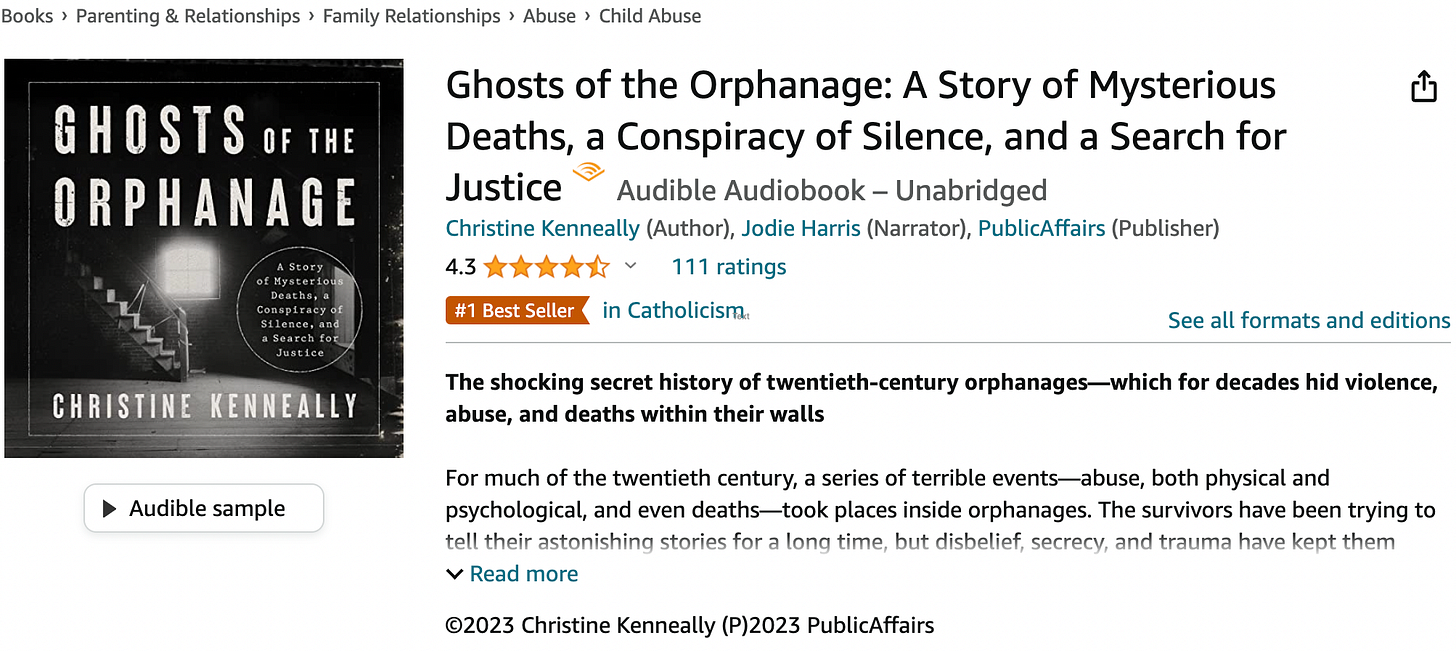An Inquiry, a cover, and lists of various lengths
The end of an inquiry marks a period of extraordinary productivity and courage
Dear readers, It’s been a while! I wanted to mark the recent conclusion of the St. Joseph’s Orphanage Restorative Justice Inquiry and share a new cover and various longlists and shortlists that “Ghosts of the Orphanage” has shown up on. Plus — an article I wrote about an amazing Australian language in “Scientific American,” and a shoutout for a new book about families in institutions over generations.
Polish translation of “Ghosts of the Orphanage”
First, here’s the stunning cover of “Ghosts of the Orphanage,” recently published in Poland.
Anyone who knows the story of orphanage survivors across the world will instantly recognize the literal reference — children were addressed by numbers. But the artist has done so much more. This picture isn’t just truthful, it’s haunting, and it evokes a disturbing connection between different kinds of dehumanising 20th century institutions.
If you speak Polish, you can read more about it here.
St. Joseph’s Orphanage Restorative Justice Inquiry
The St. Joseph’s Orphanage Restorative Justice Inquiry recently released its final report. It’s hard to convey what an epic effort this document represents. It includes the voices of many brave and smart people who have done unique and pioneering work.
Read it here, and if you only have time for some of it, read the reflections from former residents. Their statements, along with contributions from many participants, describe the complexity of healing and the power of community. Incredible things happen when good people come together and try really hard.
Here’s an article about the Inquiry from VT Digger’s Kevin O’Connor, who has been reporting on Vermont’s Catholic Church for a long time. O’Connor describes the deafening silence from the local Church.
A restorative justice effort to support former residents of Burlington’s St. Joseph’s Orphanage is ending after successfully lobbying for a new state law, but without religious leaders offering personal records or restitution.
Kevin O’Connor, VT Digger
Short and Long Lists
In 2023, “Ghosts of the Orphanage” was shortlisted for Australia’s Walkley Book Award, and longlisted for Australia’s Nib Literary Award, and the UK’s Moore Prize for Human Rights Writing.
Other announcements may be forthcoming…
Recently, the Audible version of the book became a #1 Best Seller in ‘Catholicism’ and ‘Sociology: Abuse’ at Amazon. It was read by the talented Jodie Harris.
Is happy the right word? I’m not sure, but I was satisfied to see “Ghosts of the Orphanage” show up on this Reddit list of “the most terrifying nonfiction books.” It’s in great company. Elie Wiesel’s “Night” and Timothy Snyder’s “Bloodlands” were mentioned.
Grammar Changes How We See
I wrote about fascinating work on an Australian language that gives us insight into how language influences perception for Scientific American.
Five Generations
Frank Golding’s story appears briefly in “Ghosts of the Orphanage.” In “That’s Not My Child: Five Generations on the Welfare Treadmill,” Frank investigates the multigenerational history of institutionalisation and trauma in his family.
This promises to be an important work — the legacy of institutionalisation over many generations is well-known by survivors but little studied by historians. Frank is both an historian and a former resident of an orphanage, so he’s the perfect person to write this account.
There is more to Frances Sinnett’s secret pain than the loss of her children — including the author — to an orphanage. Battalions of sorrows begin when her grandfather at 11 years old is imprisoned on a hulk in 1865. Then comes Gallipoli and the Somme. Her father’s war does not stop when the guns fall silent. The family is ripped apart by trauma, alcoholism, violence and betrayal at home. State intervention makes matters worse. Meticulous research by historian Golding finds more than 30 Sinnett children in institutions over five generations. Has the cycle been broken at last?








